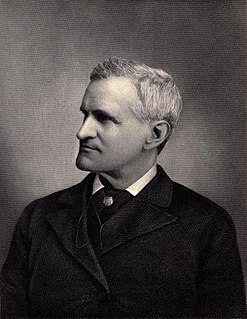A Quote by Viktor E. Frankl
Most important, however, is the third avenue to meaning in life: even the helpless victim of a
hopeless situation, facing a fate he cannot change, may rise above himself, may grow beyond
himself, and by so doing change himself. He may turn a personal tragedy into a triumph.
Related Quotes
We must never forget that we may also find meaning in life even when confronted with a hopeless situation, when facing a fate that cannot be changed. For what then matters is to bear witness to the uniquely human potential at its best, which is to transform a personal tragedy into a triumph, to turn one's predicament into a human achievement. When we are no longer able to change a situation-just think of an incurable disease such as inoperable cancer-we are challenged to change ourselves.
The fear that things may change tomorrow... Somebody may die, you may go bankrupt, your job may be taken away. There are a thousand and one things which may change. You are burdened with fears and fears, and none of them are valid - because yesterday also you were full of all these fears, unnecessarily. Things may have changed, but you are still alive. And man has an immense capacity to adjust himself in any situation.
A man unattached and without wife, if he have any genius at all, may raise himself above his original position, may mingle with the world of fashion, and hold himself on a level with the highest; this is less easy for him who is engaged; it seems as if marriage put the whole world in their proper rank.
In everything that can be called art there is a quality of redemption. It may be pure tragedy, if it is high tragedy, and it may be pity and irony, and it may be the raucous laughter of the strong man. But down these mean streets a man must go who is not himself mean, who is neither tarnished nor afraid.
Someone who does not draw strength from himself and who is incapable of finding the meaning of his life within himself will...seek the map to his own orientation somewhere outside himself-in some ideology, organization, or society, and then, however active he may appear to be, he is merely waiting, depending. He waits to see what others will do, or what roles they will assign to him, and he depends on them-and if they don't do anything or if they botch things, he succumbs to disillusion, despair, and ultimately, resignation.
Every artist's strictly illimitable country is himself. An artist who plays that country false has committed suicide; and even a good lawyer cannot kill the dead. But a human being who's true to himself - whoever himself may be - is immortal; and all the atomic bombs of all the antiartists in spacetime will never civilize immortality.
Man often becomes what he believes himself to be. If I keep on saying to myself that I cannot do a certain thing, it is possible that I may end by really becoming incapable of doing it. On the contrary, if I have the belief that I can do it, I shall surely acquire the capacity to do it even if I may not have it at the beginning.
Faithfulness to the truth of history involves far more than a research, however patient and scrupulous, into special facts. Such facts may be detailed with the most minute exactness, and yet the narrative, taken as a whole, may be unmeaning or untrue. The narrator must seek to imbue himself with the life and spirit of the time. He must study events in their bearings near and remote; in the character, habits, and manners of those who took part in them. He must himself be, as it were, a sharer or a spectator of the action he describes.





































